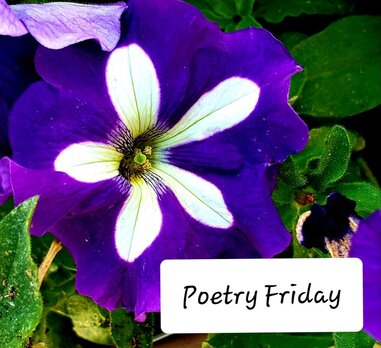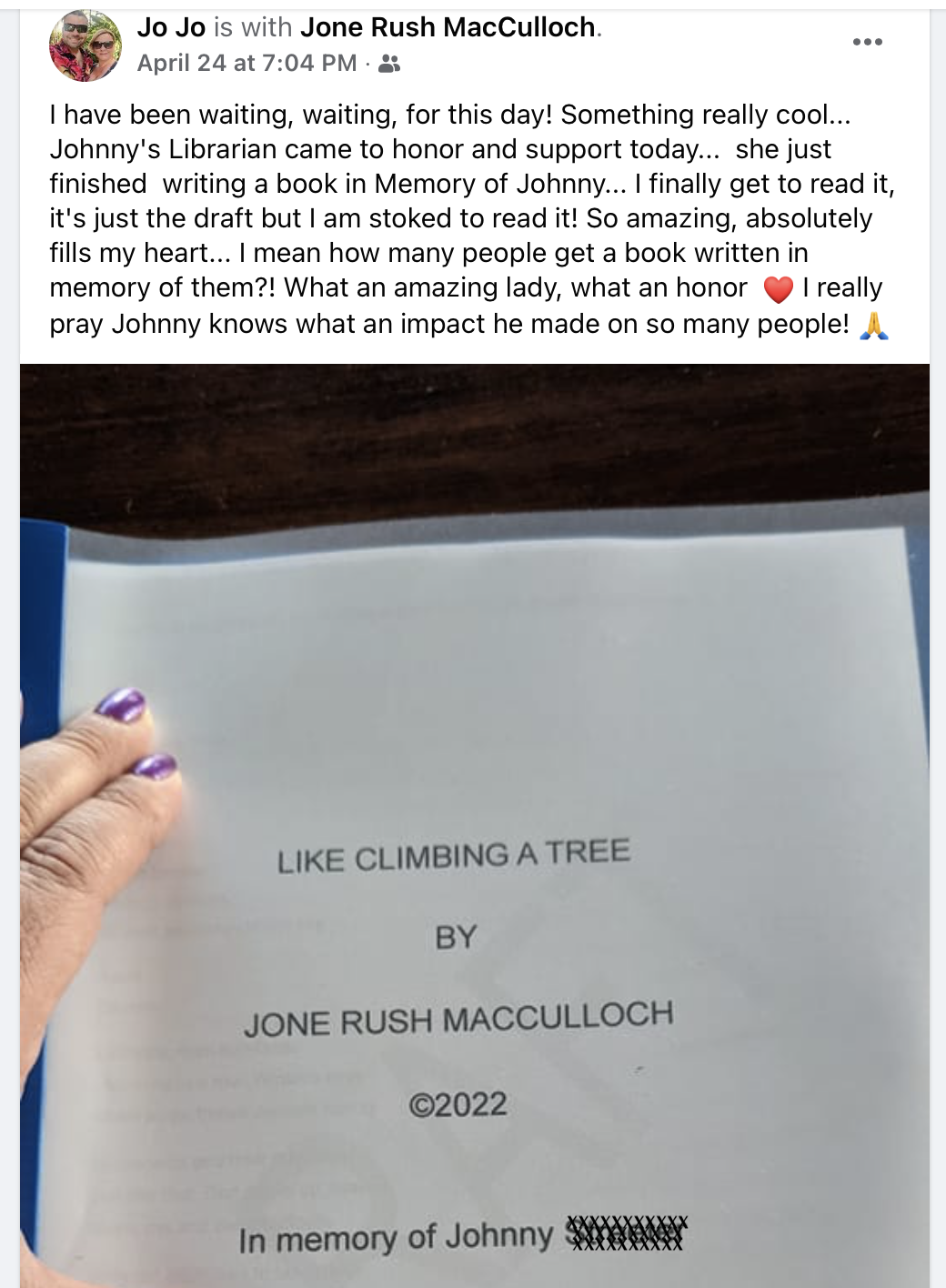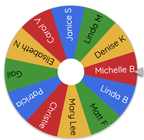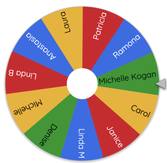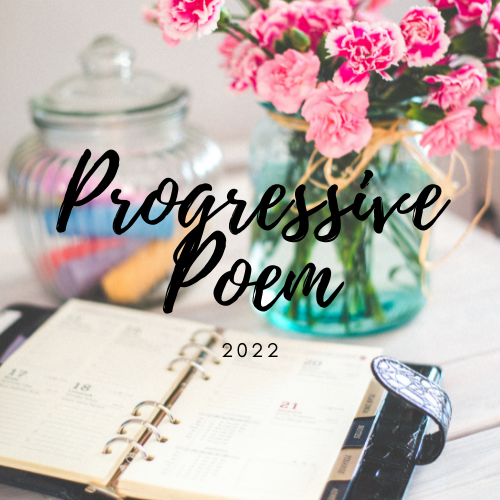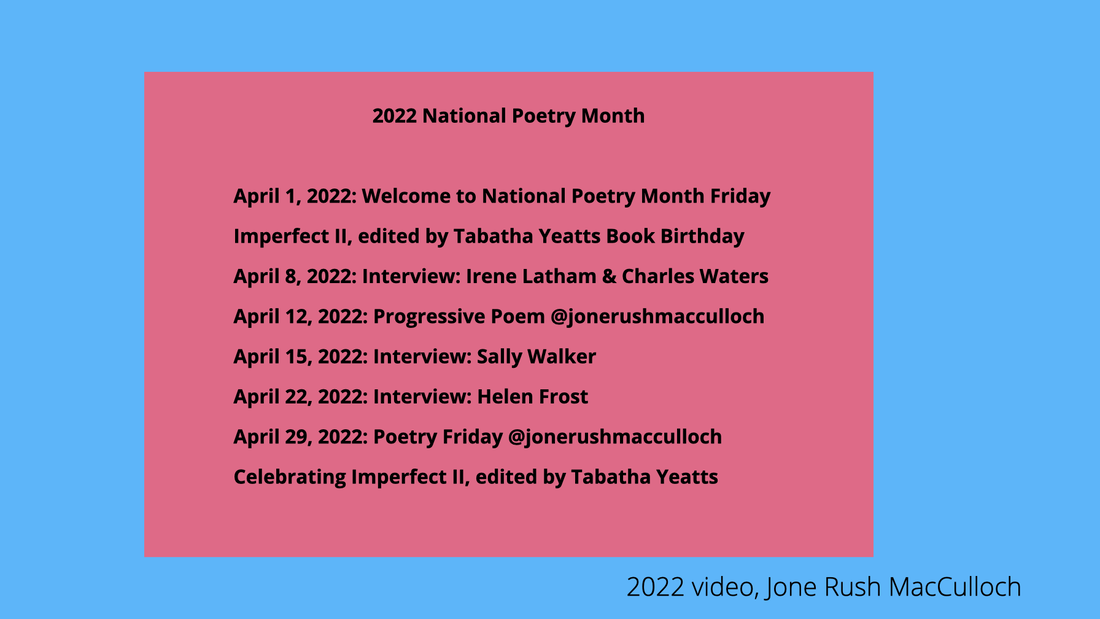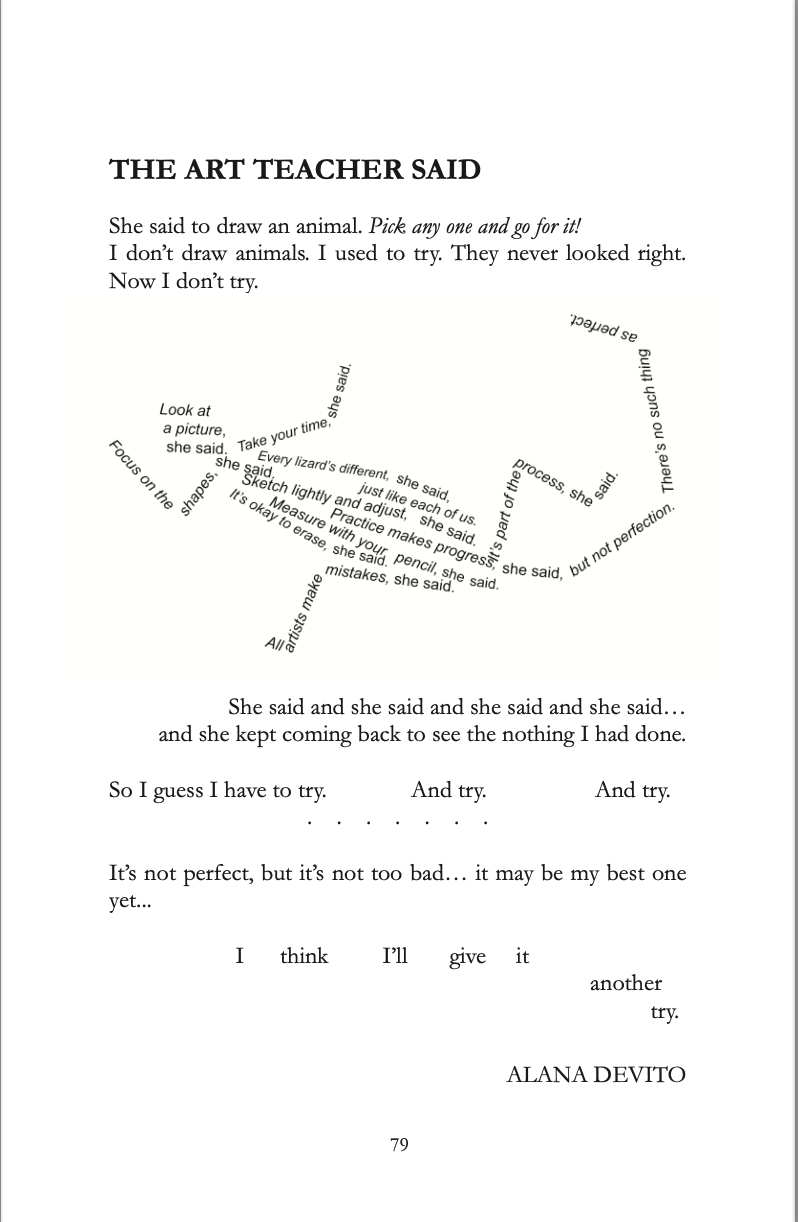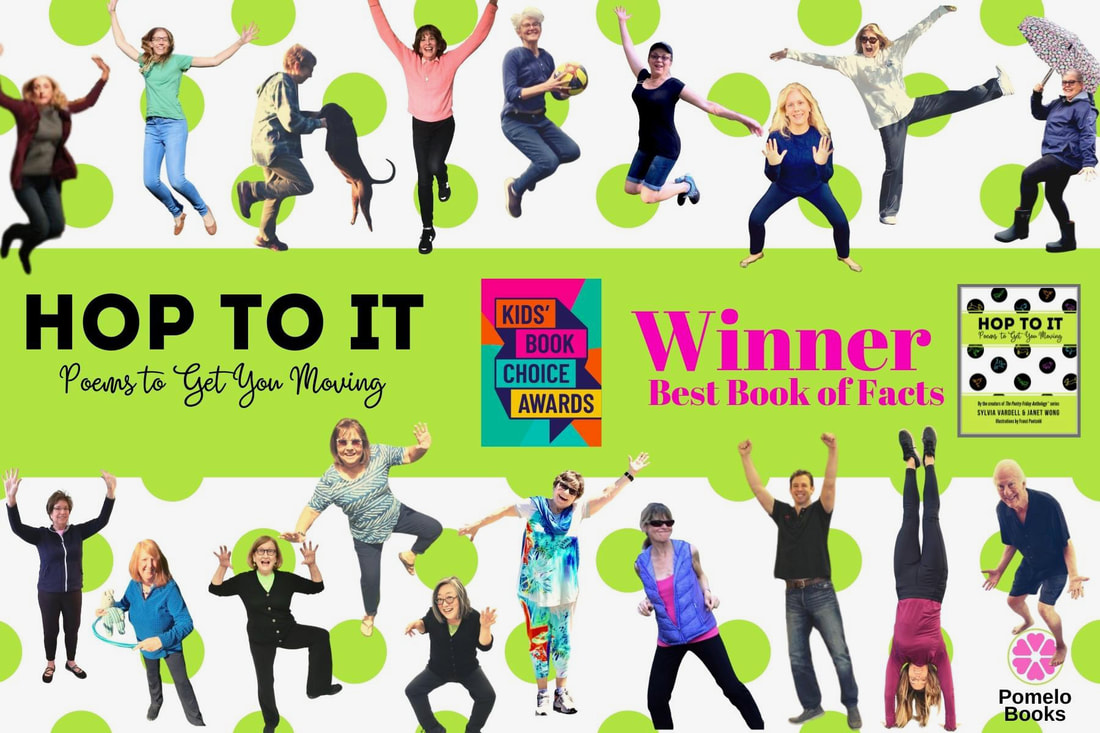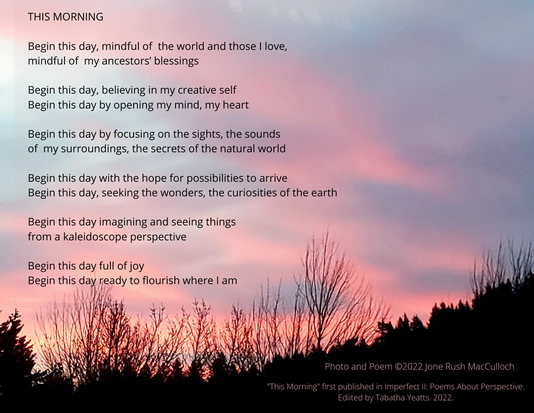
I started the month featuring the poem by Alana Devito which is in Imperfect II, edited by Tabatha Yeatts. Today I'd like to share my poem in the same book. I have a copy of the book that I would like to send off to someone.
Copies of Imperfect II can be purchased at Amazon. Progressive Poem 2022 is Wrapping UP
The progressive poem has been quite the journey this month. Today it's at Karen’s Got a Blog. And tomorrow it ends at Michelle Kogan Painting, Illustration, & Writing.
To see it unfold at each blog, visit here: 1 Irene at Live Your Poem 2 Donna Smith at Mainly Write 3 Catherine Flynn at Reading to the Core 4 Mary Lee at A(nother) Year of Reading 5 Buffy at Buffy Silverman 6 Linda Mitchell at A Word Edgewise 7 Kim Johnson at Common Threads 8 Rose Cappelli at Imagine the Possibilities 9 Carol Varsalona at Beyond Literacy Link 10 Linda Baie at Teacher Dance 11 Janet Fagel at Reflections on the Teche 12 Jone at Jone Rush MacCulloch 13 Karin Fisher-Golton at Still in Awe Blog 14 Denise Krebs at Dare to Care 15 Carol Labuzzetta @ The Apples in my Orchard 16 Heidi Mordhorst at My Juicy Little Universe 17 Ruth at There is no such thing as a God-forsaken Town 18 Patricia at Reverie 19 Christie at Wondering and Wandering 20 Robyn Hood Black at Life on the Deckle Edge 21 Kevin at Dog Trax 22 Margaret at Reflections on the Teche 23 Leigh Anne at A Day in the Life 24 Marcie Atkins 25 Marilyn Garcia 26 JoAnn Early Macken 27 Janice at Salt City Verse 28 Tabatha at The Opposite of Indifference 29 Karen Eastlund at Karen’s Got a Blog 30 Michelle Kogan Painting, Illustration, & Writing Winners!! A big thank you to Anne Irza-Leggat, Educational Marketing Manager at Candlewick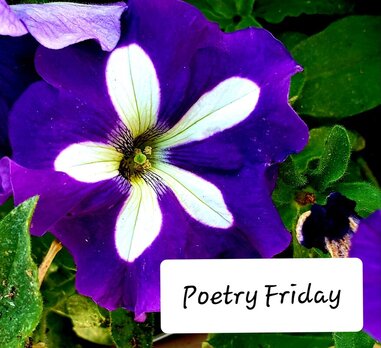 Margaret at Reflections on the Teche is hosting us today. She has added a beautiful and poignant line to the 2022 Progressive Poem today. Today I am thrilled to have an interview with Helen Frost on her new book, Wait-And See with the phenomenal photographer Rick Lieder. I was fortunate to work with Helen at a Highlights Foundation "Novel in Verse" retreat in 2013. She's a most excellent teacher and mentor. 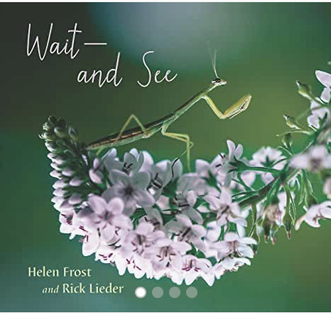 JRM: This is the sixth book in which you have collaborated with Rick Lieder. Could you tell my blog readers a bit about the process: How did this collaboration begin? Do you work together from the start? Which comes first, the photos or the poetry? HF: It began in 2006, when Rick Lieder’s wife, Kathe Koja, and I were doing a book event together, and Kathe said she thought I’d love her husband’s insect photography. She was right—the beautiful photographs made me look more closely at the world right outside my back door, and I started seeing more insects, and paying more attention to them. I wrote a poem about seeing and caring for the insect world, and Rick and I put the poem and images together in a book we started sending around to editors. It was a few years before Sarah Ketchersid, at Candlewick, loved the book as much as we did, and, in 2012, it was published to great reviews and soon found many enthusiastic readers. In the ten years since then, we have collaborated, together with Sarah and others at Candlewick, to produce five more books, with another under contract for 2024. Neither poetry or photos comes first—we usually start talking about a new book when one of us has an idea, and then there is about a year of back-and-forth as we refine the idea until it is ready to send as a proposal to Sarah. The proposal is usually a poem and accompanied by about 50 possible images. After it is accepted, lots more work goes into creating the finished book. I keep working on the text, and Rick continues to take and select more images as the book comes into being. JRM: How many drafts were there for Wait and See? What type of research did you do for the book? And did you write the back-matter as well? HF: It’s impossible to say how many drafts there are, because I save my work hour by hour as I go. But I think I could estimate that there are between 20 and 50 versions. I sometimes change a line in the poem to “match” an image I love, and Rick sometimes finds a better image for a line we don’t want to let go. Yes, I do a lot of research as I write the poems, and continue to learn more as I write the backmatter. I begin with books and online research, and correspond with experts as needed. JRM: What was the most surprising thing you learned about the praying mantis? HF: I was surprised to learn how many nymphs emerge from one ootheca (egg case). There can be as many as 400—which makes you think about all the dangers they face, and how amazing it is when one survives to adulthood, and you see it looking at you! JRM: Not only does the book teach about praying mantis, How did you arrive at the title, Wait and See? It says so much more than the arrival of praying mantises and I can see how teachers would use this in the classroom. HF: Yes, Wait—and See (the dash in the title suggests the waiting) does emphasize an important aspect of the book. Praying mantises are hard to find, and the book can help children learn where and how to look for them, but even more, it shows how important patience is in many ways. I’d love to think that teachers might read this book to children and then go outside and encourage the children to quietly look around and come back in to share what they’ve seen. It would be unlikely to be a praying mantis (though wouldn’t that be great?) but they’ll definitely see something. And maybe the book will help them learn the art and value of being still and attentive in many situations. If you look at each of our books, there is a “big idea” like this behind each of them. They are often given as gifts (to children and adults) for special life events: birth of a first child or a new sibling (Hello, I’m Here! and Wake Up), engagement or marriage (Among a Thousand Fireflies), milestones such as first day of school or graduation (Step Gently Out and Sweep Up the Sun). And I know that Sweep Up the Sun has brought comfort to people grieving the loss of a loved one. JRM: You have written several novels in verse. I noticed that you call them “novels in poems”. How did you arrive with this term (which I rather like)? HF: I love poetry, and I love using different elements of poetry in my picture books and novels; the term “novels-in-poems” (though I’m not adamant about it) is a way of calling attention to that. JRM: What are your current projects? HF: Rick and I are collaborating on a new book, probably to come out in 2024, tentatively titled The Mighty Pollinators, about pollen and pollinators. The “big idea” behind this book is that small things like pollen and pollinators are essential. As we were discussing this, Rick pointed out, “Our readers are small, too, and they are important.” JRM: Thank you, Helen, for giving me and other readers insight on this fabulous insect. I am looking forward to your next project as pollinators are one of my favorite studies. Giveaway TimeAnne Irza-Leggat, Educational Marketing Manager at Candlewick, has generously offered a copy of last week's book, Out of This World by Sally Walker and this week's book Wait-and See by Helen Frost. Leave a comment by April 27 on either blog post to be eligible to win. Winners will be announced next week. Speaking of Winners...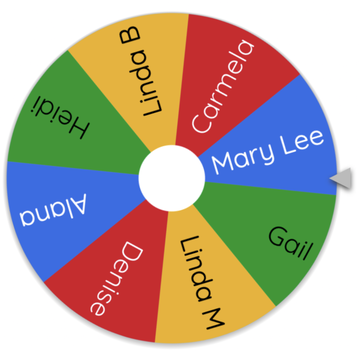 Mary Lee Hahn, you have won the 3d drawing and optical illusions: how to draw optical illusions and 3d art step by step Guide for Kids, Teens and Students. New edition and a set of Staedtler Mars Lumograph Art Drawing Pencils, 12 Pack Graphite Pencils in Metal Case . Congratulations. Tabatha will be sending that out soon. Today I am hosting the 2022 Progressive Poem. It's been at least ten years that the Progressive Poem has been a collaborative effort in the Poetry Kitlit World. It's fun to see how the poem reveals itself throughout the month. This year, the poem is almost a CENTO style as the contributors have been finding lines from favorite poems and books. I went in search of lines in Chris Baron's The Magical Imperfect. I love that book. I found several lines (from two places in the book)that spoke to me: The fog is lighter now, and the moon is slicing through the sky. I whisper to it, tap on the trunk, imagine it feeling my sound. And I'm adapting to this: The moon is slicing through the sky. We whisper to the tree, tap on the trunk, imagine it feeling our sound. 2022 Progessive PoemWhere they were going, there were no maps. Sorry! I don’t want any adventures, thank you. Not Today. Take the adventure, heed the call, now ere the irrevocable moment passes! We have to go back. I forgot something. But it’s spring, and the world is puddle-wonderful, so we’ll whistle and dance and set off on our way. Come with me, and you’ll be in a land of pure imagination. Wherever you go, take your hopes, pack your dreams, and never forget – it is on our journeys that discoveries are made. And then it was time for singing. Can you sing with all the voices of the mountain, paint with all the colors of the wind, freewheeling through an endless diamond sky? Suddenly, they stopped and realized they weren’t the only ones singing. Listen, a chattering of monkeys! Let’s smell the dawn and taste the moonlight, we’ll watch it all spread out before us. The moon is slicing through the sky. We whisper to the tree, tap on the trunk, imagine it feeling our sound. Lines 1 -12, poet and where they are from:
Now I place it in the the hands of Karin Fisher-Golton at Still in Awe. 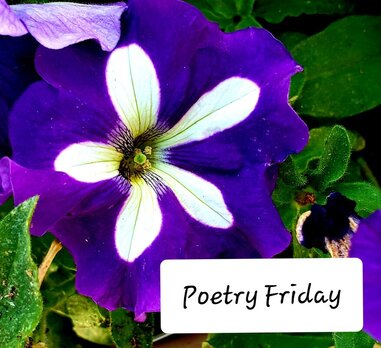 Welcome to Poetry Friday. This week Janice at Salt City Verse is doing hosting duties. She's featuring David Elliott's new book, At The Pond. I'm featuring an interview with Irene Latham and Charles Waters about African Town. If you not read it, I recommend you run and get a copy or perhaps you might win a copy here. Leave a comment and I will choose a recipient. 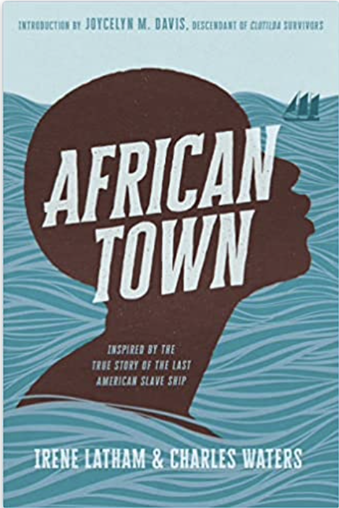 JRM: This is your third collaboration. What have you learned about working together in the past? How was this adventure different or new? IL & CW: Can I Touch Your Hair? taught us to be open and trust one another as writing partners. Dictionary for a Better World taught us to be brave and try new poetry forms. African Town—because it was our first adventure together in YA and in historical fiction—required ALL of that as well as a whole new depth of collaboration, including research, responsibility, and sensitivity for the descendants and their ancestors. Each character we gave a voice was someone’s father, brother, mother, grandparent. Such a humbling experience. JRM: You cover such a large swath of time 1859-1901, how were you able to keep all the research and poems from being too unyielding? IL & CW: We were constantly aware of two things throughout the writing process: 1) we were asking A LOT of the reader by telling the story in 14 voices and 2) we needed to keep the story moving with only the details most pertinent to our book’s message of hope and resilience. We made ourselves stick to our outline. JRM: Was there a section of the book which you wished you could have stayed longer with or one you were thankful when the section was completed? IL & CW: Well, since writing is rewriting, we wish we could have stayed longer on the whole book to make it even better. One (or more) sections we’re thankful to have completed and not work on again include the parts chronicling being in the barracoons in Africa, the Middle Passage, the time in the Alabama swamplands (where the Clotilda survivors were sold as chattel), and the years they lived as enslaved people. JRM: How did you determine who researched and wrote the poems for the fourteen characters? Was there a poem style you tried and realized it wasn’t fitting the character? Did you share any of the characters? Were there characters whose voice and story surprised you? IL & CW: Initially we divvied the voices according to where we each were in the research at the time. We each wrote black and white characters to get a first draft, and then we spent marathon phone conversations revising line by line. The Clotilda poems we wrote together from the get-go. We put a lot of thought into which poetry form for which character at the start, and we stuck with our choices. And yes, there were many surprises along the way! We learned Abilè̩ had a secret—though it took a long time to discover what that secret was! JRM: I’m curious about the process. After the research and poem drafts how did you piece and stitch the story like a quilt? IL & CW: We outlined the entire book at the outset, thinking of it in “scenes.” So we knew for each poem who was speaking, and what critical information needed to be relayed. Of course some things shifted during the writing and revision process, but we had a solid plan based on the actual historical events. JRM: What do you hope readers will take away from reading African Town? IL & CW: So many things! This is rich material. We hope young people in particular recognize that there is no way of going forward in life unless we look back, take stock of the past, and bear witness by reading, watching documentaries, and having conversations about family history. JRM: How had African Town been received by the descendents of Clotilda? IL & CW: So far, there has been gratitude from the descendants for telling this story with respect and care for their ancestors. We’re particularly grateful to Altevese Rosario, descendant of Kossola and Abilè̩, who also wrote the Teacher’s Guide for the book, as well as Joycelyn Davis, a descendant of Oluale and Maggie who wrote our introduction. RM: You have shared several interviews about African Town. I am wondering if there was an unasked question you’d like to share here and answer? Are there any characters you cut or others you wish you could have included? IL & CW: We did cut a character named Free George. He appears in the poems now, but doesn’t have his own voice. As a free black man during the Civil War, his perspective and life was really interesting and inspiring to us. Also, had we known earlier about Matilda McCrear, who was only 2 at the time of the crossing onboard Clotilda, we might have given her a voice as well. But we had already turned in the book at that point and were only able to add her in a single poem. (But at least we were able to do that!) RM: What is next for you both? IL & CW: Our picture book Be A Bridge from Carolrhoda/Lerner Publishing with illustrations from Nabila Adani comes in August of this year. Thank you, Irene and Charles, for taking the time to answer questions about taking Africatown. You can order a signed copy from Alabama Booksmith. I later asked Irene about what is available to visit in and near Africantown and Mobile, AL. She shared that there are quite a few things in the works in Africatown and Mobile to commemorate this history. The Africatown Heritage House opens possibly in May Mobile has a history museum and other attractions, like a battleship to tour, Bellingrath gardens, Fairhope (a cool history all its own) and gorgeous beaches Gulf Shores and Orange Beach very close. I just may have to make a visit. 
Today is April 1, 2022, the beginning of National Poetry Month. Heidi at my juicy little universe is hosting all the poetry goodness in the world today.
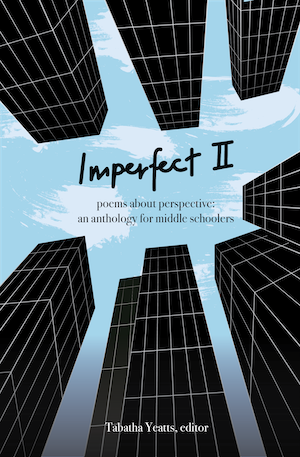
Happy Book Birthday, Imperfect II. Thank you Tabatha Yeatts for editing and encouraging people to submit. So excited to be a part of this collection. Anthologies for the MG audience, 5th-9th grades, are limited.
Tabatha Yeatts has offered a prize that is swoon worthy. A copy of 3d drawing and optical illusions: how to draw optical illusions and 3d art step by step Guide for Kids, Teens and Students. New edition and a set of Staedtler Mars Lumograph Art Drawing Pencils, 12 Pack Graphite Pencils in Metal Case . It's the perfect prize to go with a sneak peek at Alana Devito's poem, "The Art Teacher Said" which is in this new collection. 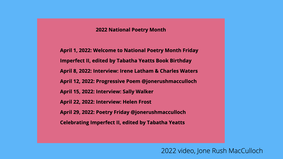
What a great way to begin National Poetry Month. I hope you'll come back for some great interviews this month.
BONUS: Fifth Graders Create Art and Poems
Amy at The Poem Farm is hosting Poetry Friday this week.
She's looking back at the previous National Poetry Months as she prepares for 2022 National Poetry Month. Do you have a proverb waiting to be a poem? Check out Amy's idea for April. 2022 National Poetry Month Here
For more than ten years, I have participate in the monthly challenge of writing and posting a poem a day for April. I've written haiku, haiga, chose words with "LL" and write poems for those words, collaborated with a nature photographer and wrote NW creature poem, written food poems, and worked on revisions.
As I started to ponder what to do for 2022, I had this grand idea left over form the #februallage poem. Then I had a little heart to heart with myself. About staying focused. About finishing the revision I want to finish before June on my WIP. So this year, instead of running and diving headlong into the new shiny idea, I am hanging out with my WIP. It's important and deserves my attention. That said, for Poetry Fridays I have three great author interviews as well as celebrating a new anthology for middle schoolers. Please enjoy this video about Poetry Friday here for the next month |
AuthorAll photos and poems in these blog posts are copyrighted to Jone Rush MacCulloch 2006- Present. Please do not copy, reprint or reproduce without written permission from me. Categories
All
Archives
July 2024
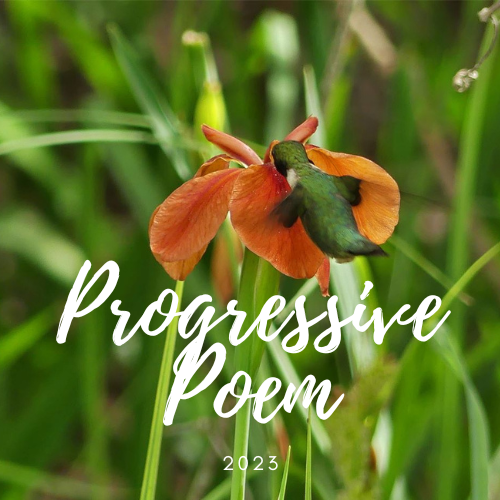
2023 Progressive Poem
April 1 Mary Lee Hahn, Another Year of Reading April 2 Heidi Mordhorst, My Juicy Little Universe April 3 Tabatha, The Opposite of Indifference April 4 Buffy Silverman April 5 Rose Cappelli, Imagine the Possibilities April 6 Donna Smith, Mainely Write April 7 Margaret Simon, Reflections on the Teche April 8 Leigh Anne, A Day in the Life April 9 Linda Mitchell, A Word Edgewise April 10 Denise Krebs, Dare to Care April 11 Emma Roller, Penguins and Poems April 12 Dave Roller, Leap Of Dave April 13 Irene Latham Live You Poem April 14 Janice Scully, Salt City Verse April 15 Jone Rush MacCulloch April 16 Linda Baie, TeacherDance April 17 Carol Varsalona, Beyond Literacy Link April 18 Marcie Atkins April 19 Carol Labuzzetta at The Apples in My Orchard April 20 Cathy Hutter, Poeturescapes April 21 Sarah Grace Tuttle, Sarah Grace Tuttle’s Blog, April 22 Marilyn Garcia April 23 Catherine, Reading to the Core April 24 Janet Fagal, hosted by Tabatha, The Opposite of Indifference April 25 Ruth, There is no Such Thing as a God-Forsaken Town April 26 Patricia J. Franz, Reverie April 27 Theresa Gaughan, Theresa’s Teaching Tidbits April 28 Karin Fisher-Golton, Still in Awe Blog April 29 Karen Eastlund, Karen’s Got a Blog April 30 Michelle Kogan Illustration, Painting, and Writing |
